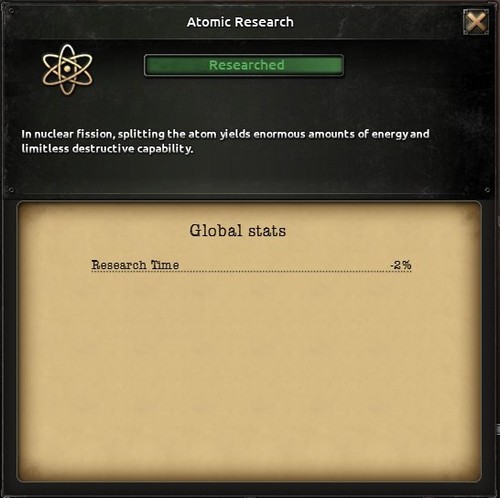Part 115: The Nile Campaign
Chapter 10 — The Nile Campaign — February 1942 to April 1943After five years of incessant violence and bloodshed, powerful winds and dense fog are descending across Europe, with bitter fighting raging across dozens of theatres scattered across the globe — the World War is at its height, and for the first time since bullets were first traded in the early months of 1938, Iberia held the advantage.
For his successful landings in Brittany, Mahmud ibn Bibil was granted command over all forces north of the Pyrenees, with the marshal ordering an immediate advance towards Paris.


He wasn’t the only marshal with influence, however, and Ricardo Etxeberria had become very influential indeed. He still controlled the loyalties of his own army, and the Basque general was more concerned with completing his conquest of Italy, determined to use the spring thaw to finally cross the Alps.


On the African front, meanwhile, Tiqnu al-Dhib still loomed large. His illness had nearly forced him into an early retirement, but he finally took to the sands once again in March of 1942, regaining his old position as marshal of the southern armies.
Those armies weren’t what they once were, however, severely weakened by the Supreme Leader’s strategic redeployments after the capitulation of Almoravid Morocco. It was mostly composed of Moroccans and Germans now, but Tiqnu al-Dhib quickly began recruiting and training fresh troops in preparation for an offensive eastward.


Elsewhere in the world, the communist cause wasn’t doing so well. The People’s Republic of Ibriz had already been suffering in their war against the Kingdom of New England, with the latter reaching the west coast early in the year, so the declaration of war by the Berber Union only made things worse.
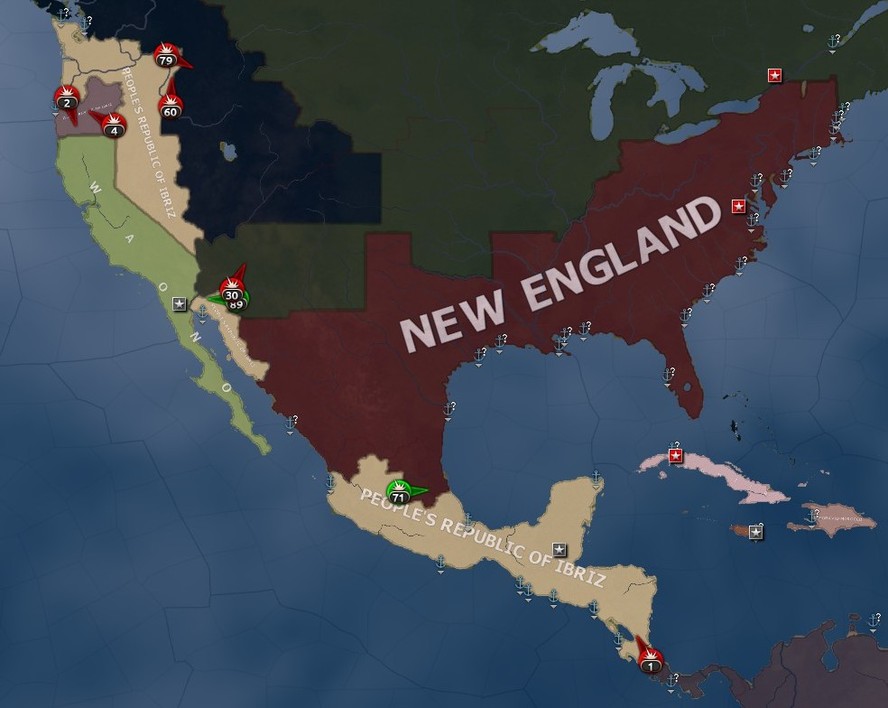
In the far east, communism had already been defeated, but Iberia’s perennial enemy in the Almoravid dynasty was also on the retreat as their colony in India was being overrun by the Bengal Raj.

As far as Qadis was concerned, however, this war would be won in Europe. So a close eye was kept on Eastern Europe, where the Russians had managed a remarkable comeback in retaking Smolensk, quickly followed by a series of victories in Finland, Ukraine and Romania.

The self-declared Russian president also dispatched armies southward, and despite their inferior equipment, numbers alone were enough to break through the Caucasus and swarm into Anatolia, Syria and Mesopotamia.

Russia was still at war with Iberia, but nobody could deny that their victories were a good thing for Qadis, with the Supreme Leader immediately ordering his armies to advance on every front.
On the African front, Tiqnu al-Dhib had been warily marching across Cyrenaica, acutely aware of his inferior numbers. But with the recent recapture of Baghdad and Damascus, Egyptian armies were reeling, so the general wasted no time in launching an invasion into Egypt itself.

And he had evidently brought his army back up to scruff, because within the month, they managed to shatter enemy lines and surge into Egypt, crossing the Nile and reaching the Suez by October of 1942.
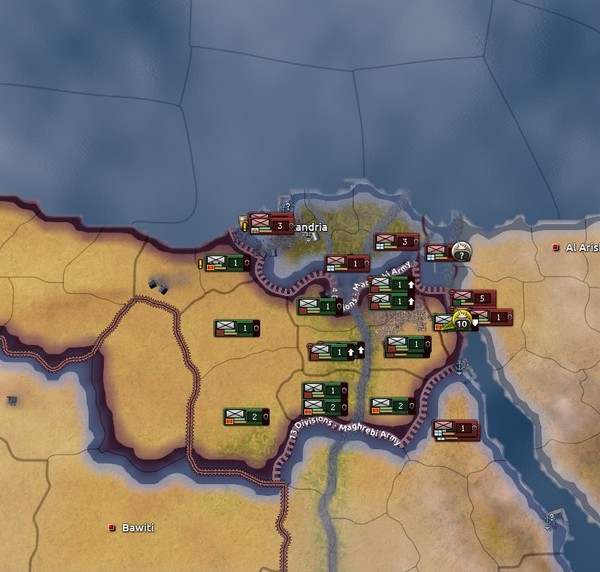
This rapid progress was met with revelry in Qadis, where Tiqnu al-Dhib was quickly gaining popularity amongst the populace and government, but the same couldn’t be said for Mahmud ibn Bibil.
With the landings in Brittany successfully distracting the Franks, the Red Army had flooded across the River Garrone and the Alps over the autumn months, only to be frustrated by another influx of enemy reinforcements in the dying days of April. The Iberians still held a slight numerical advantage, however, so the Supreme Leader’s orders were the same — advance.

In the west, meanwhile, Ibriz’s war situation was quickly spiralling. With enemy troops solidifying their hold along the west coast, the Ibrizi army was divided in two, with the greater part of their forces surrounded and trapped in Cascadia.
And despite a string of desperate attempts to break the encirclement, the fascists didn’t balk or break, with the Ibrizi suffering almost 400,000 casualties over the space of three months.
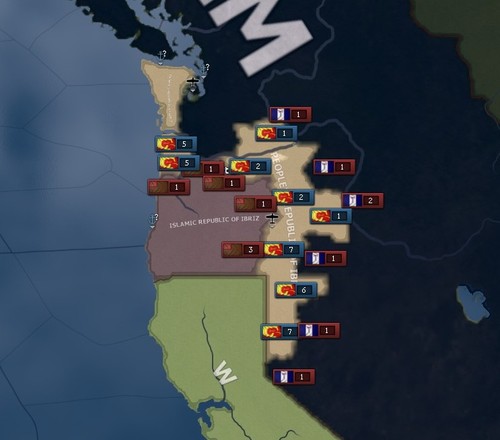
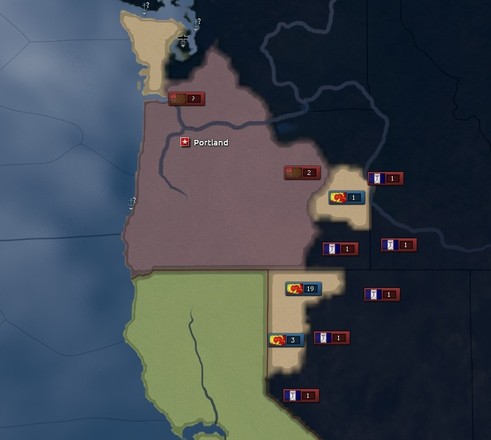
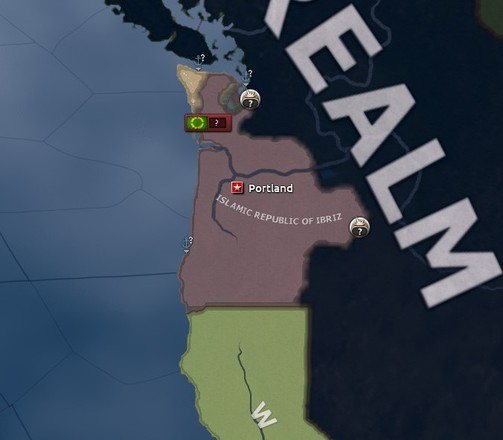
New English and Albionorian victories in the north were accompanied by a ruthless Berber advance in the south, pushing through the Panama isthmus and pouring into the valleys and watersheds of Central Gharbia over the course of 1942.
Needless to say, Ibrizi prospects weren’t looking very hopeful.
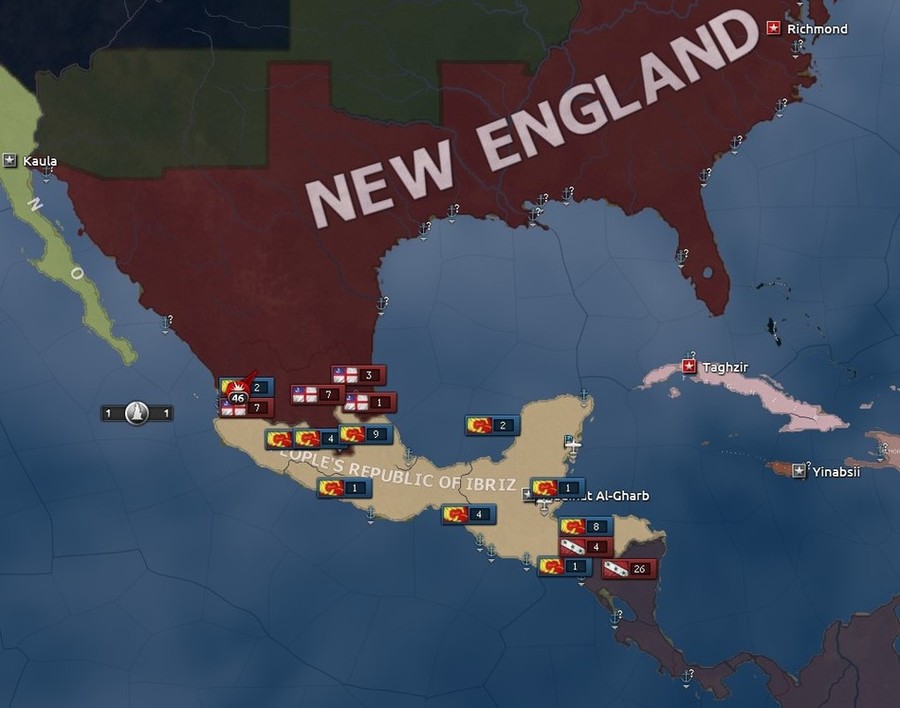
These losses weren’t just felt in Gharbia, however, they reverberated across the Atlantic Ocean and smashed into Iberia, which depended heavily on Ibrizi oil and rubber for the production of tanks, warplanes, submarines and destroyers.
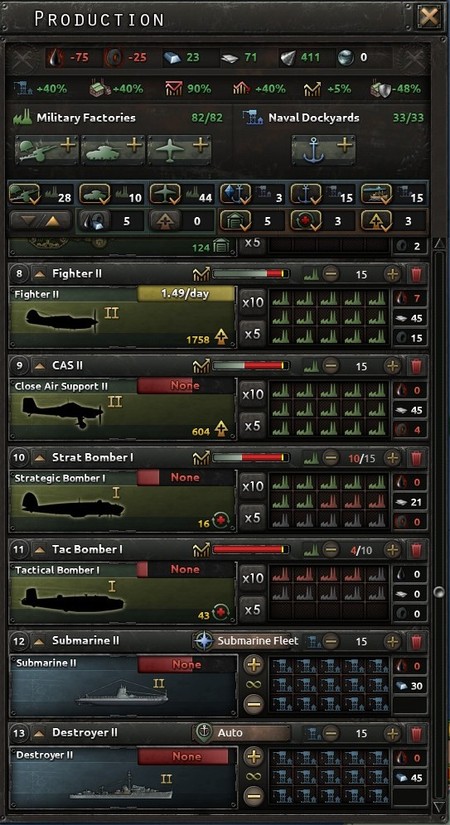
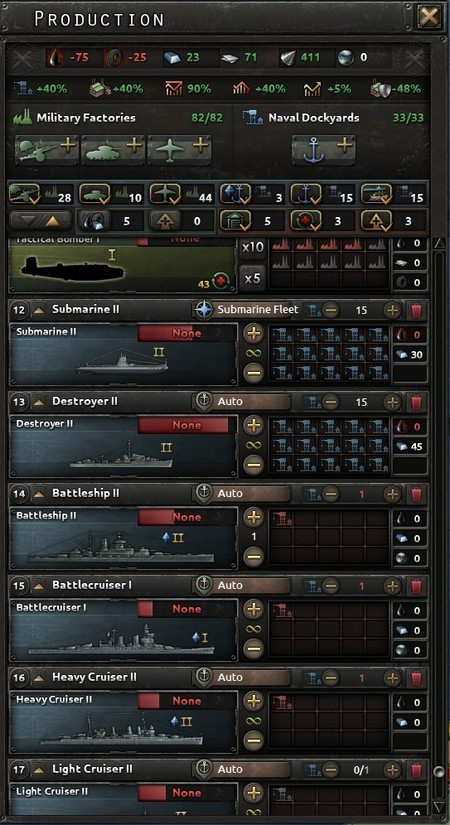
Supreme Leader Mizanur didn’t have the spare troops or naval prowess to send an army to Gharbia, so his only other option was to begin constructing synthetic refineries. Much more inefficient, and it would be several months before any were operational, critical months that would decide the outcome of the war in Europe…
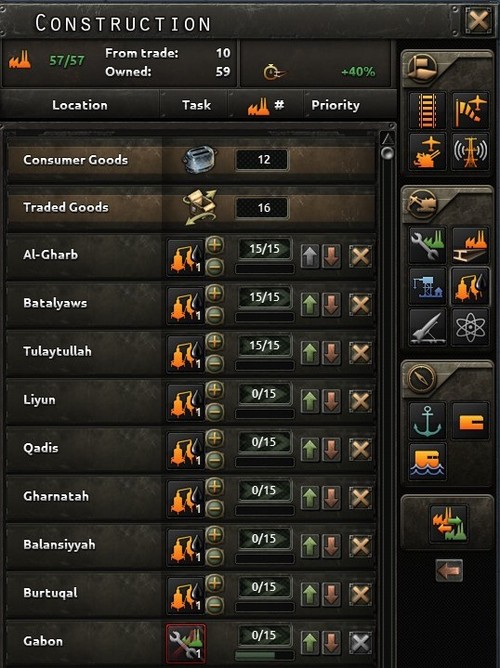
To tide production over until these synthetic refineries were completed, Supreme Leader Mizanur sanctioned an invasion into Arabia to secure the essential resources, with Tiqnu al-Dhib drawing up a series of bold plans under the hot sun of Egypt.
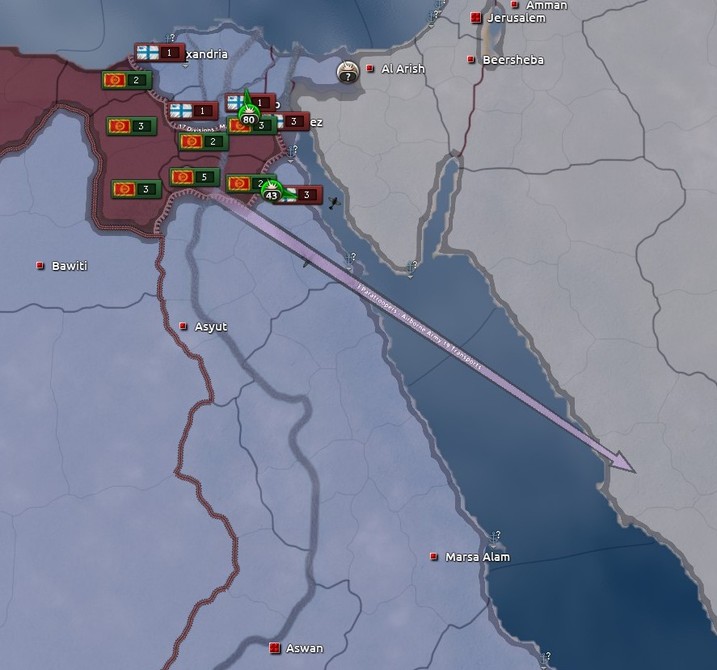
And in the waning days of summer, at long last, he was ready to launch his offensives. The Supreme Leader provided him with 3 “airborne divisions”, specially-trained over several months to slip past enemy lines via parachuting and gliding missions.
That training quickly paid off, with a torrent of fighter planes and strategic bombers providing cover for the paratroopers as they crossed the Red Sea and landed in the Hejaz.
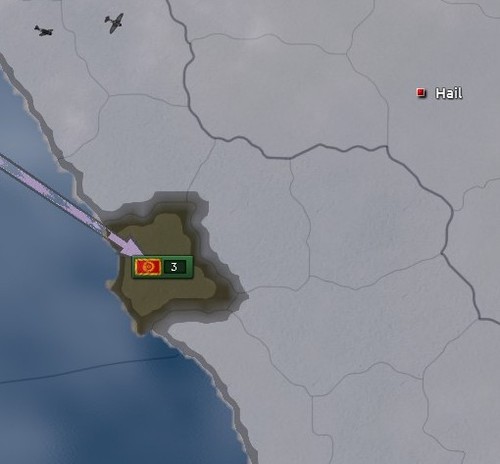
From there they struck south and seized Jeddah, a major port in the region that allowed reinforcements to be funnelled across the Red Sea. A scant few weeks later, tens of thousands of Iberians, Maghrebi and Germans were pouring southwards and capturing large parts of Yemen, before launching an offensive into Oman late in the year.
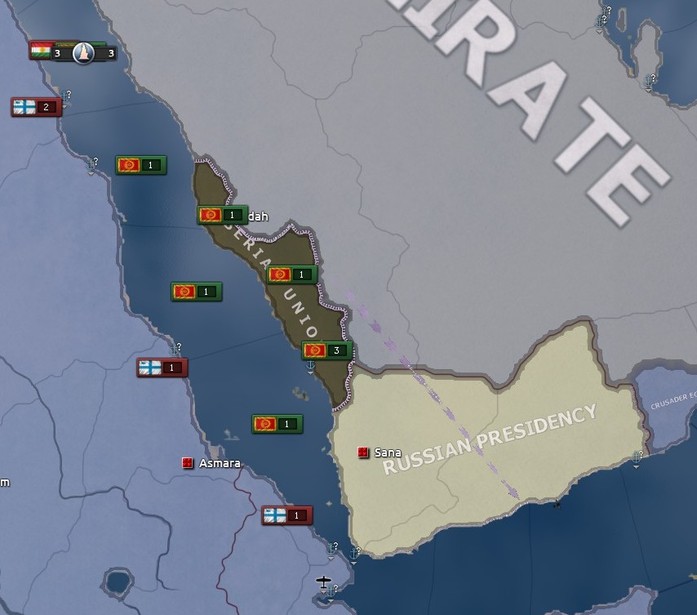
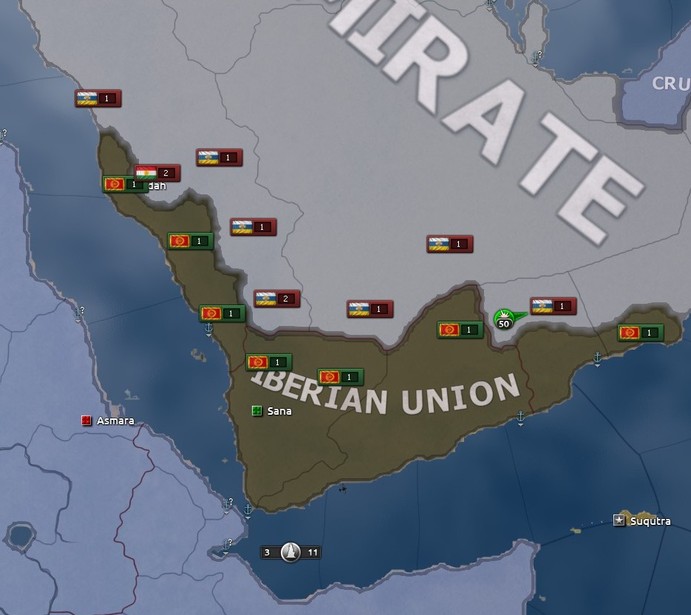
As for the Nile campaign, Tiqnu managed to solidify his control over Lower Egypt throughout the rest of the year, seizing Cairo and Giza in September, barricading the Suez in October and besieging Alexandria in December, mercilessly shelling the capital of the Apanoub kingdom.

To the north, temperatures began to plummet as another deep winter approached, with muddy roads and snow storms pitching Frankish positions into crisis. The Russians used this shift in seasons to launch another massive counter-attack all down the frontline, seizing Tsargrad, Sofia, Kiev and Minsk in another string of victories.
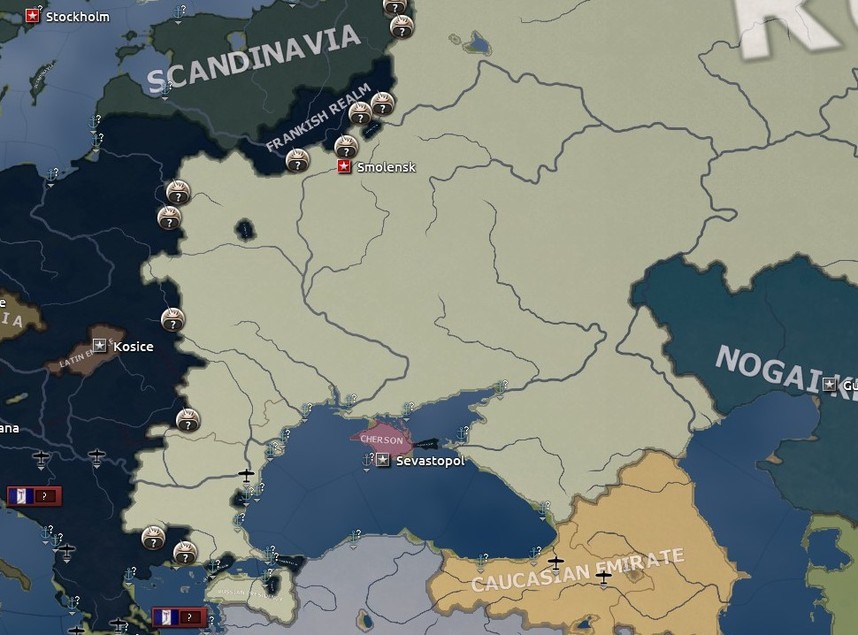
To the east, the Bengali conquest of India was finally brought to completion in the dying days of the year, with the last Almoravid officials fleeing across the Pal Strait and into Ceylon in the early days of 1943.
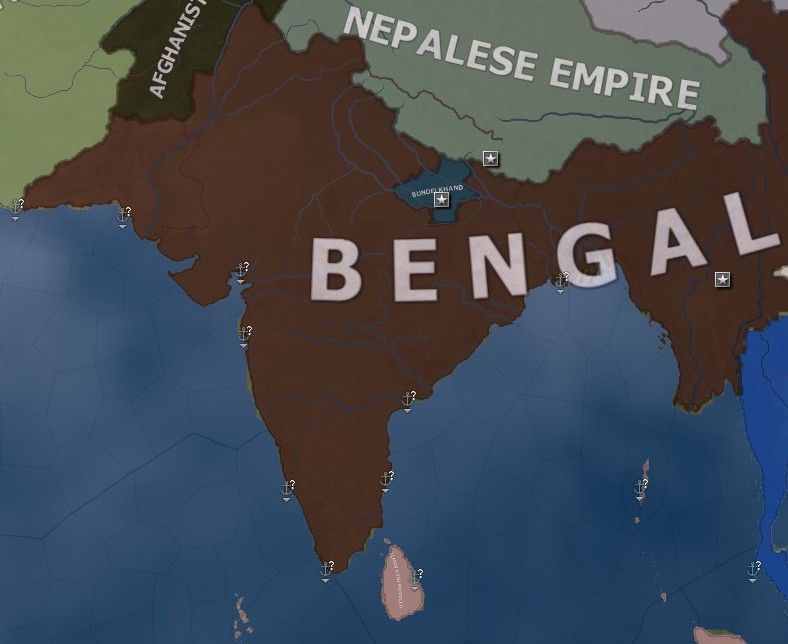
And with that, Usturaliya became the last remnant of the Almoravid Empire, once the largest and most powerful realm in the world.

Despite their downfall, the Almoravids still exerted some degree of influence. January of 1943 saw the Cedi Empire, a rump state governed by the old dynasty of Orissa, declare war on Frankish Indochina, doubtlessly influenced by the Almoravids of Usturaliya.
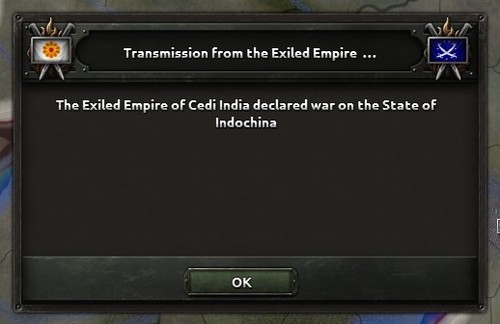
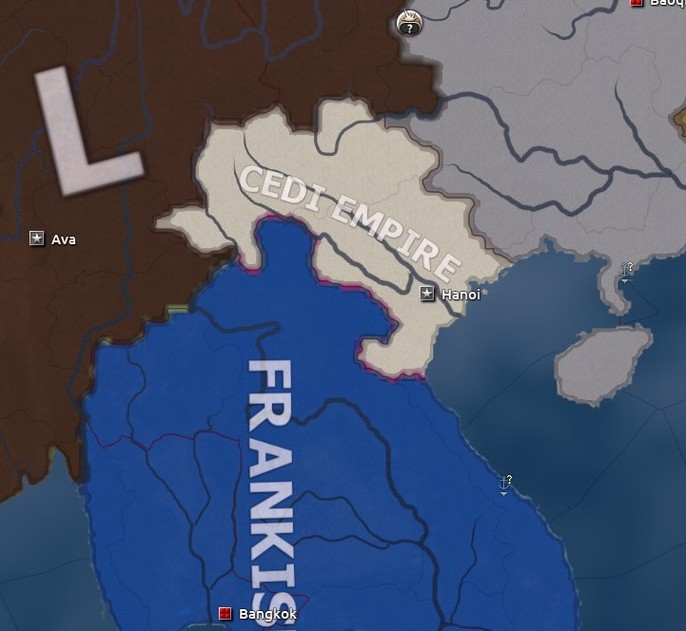
Just then, however, the rest of the world was distracted by the fall of Madinat al-Gharb in the western hemisphere. Protracted fighting in the crowded streets and thronging thoroughfares of the capital had stretched across several long, bloody weeks, but the battle finally came to an end on the 22nd of February…
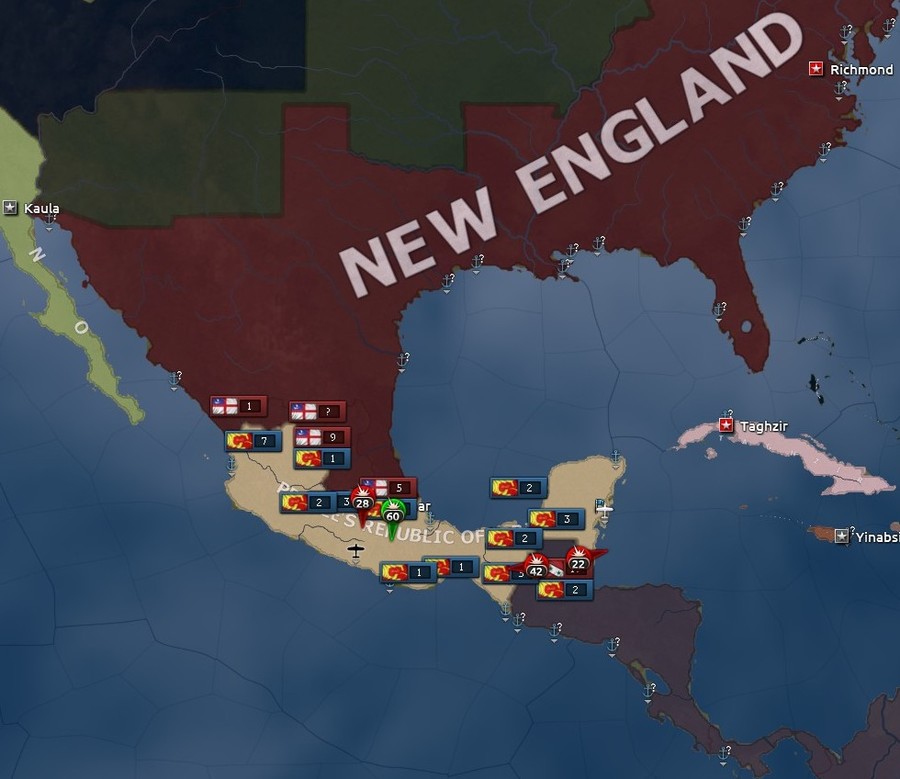
It was early in that morning that the supreme leader of Ibriz, Sa’d al-Din al-Qudsi, formally surrendered himself to the occupying Berber forces in the city.
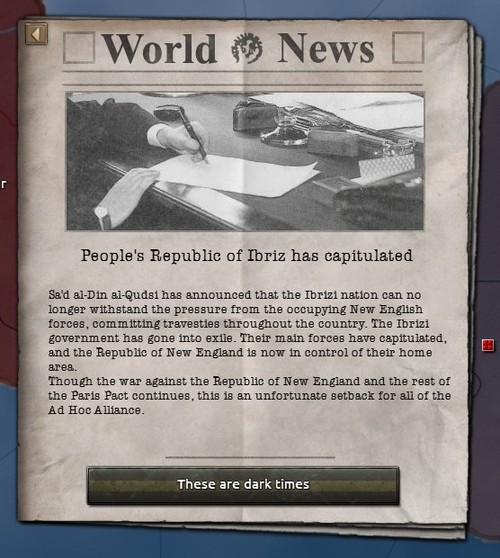
Desperate holdouts throughout the country would endure, and it wouldn’t be very long before an underground guerrilla movement was founded, but for all intents and purposes this was the end of the People’s Republic of Ibriz.
And with that, the final battle for dominance in Gharbia could begin.
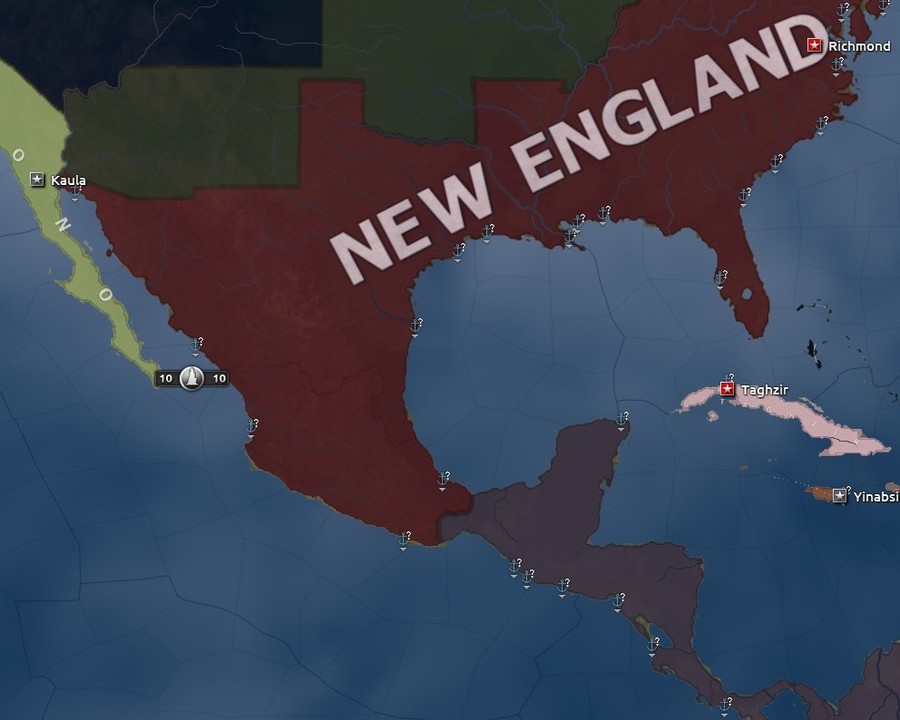
This news was met with anger and derision in Qadis, where Sa’d was mocked for taking the coward’s way out, after the leader of the Balkan Federation and CSE had fought and died for the communist cause in the dank alleyways of Athens.
Unfortunately, it would be followed by more bad news…
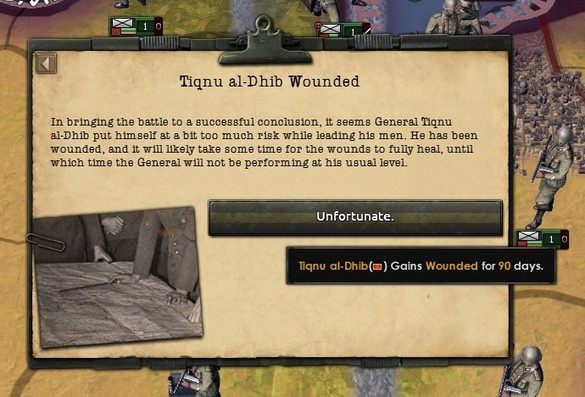
Tiqnu al-Dhib had always been a hands-on commander and general, but he had strayed too close to the duels and dogfights raging in Alexandria, and nearly lost his life for it.
The injury was gruesome, but even with shrapnel littering his leg and groin, Tiqnu refused to cease his constant bombardment of Alexandria. And deep into February of 1943, the last of the Egyptian garrison was finally evacuated by sea, abandoning their ancient capital to the Iberians.
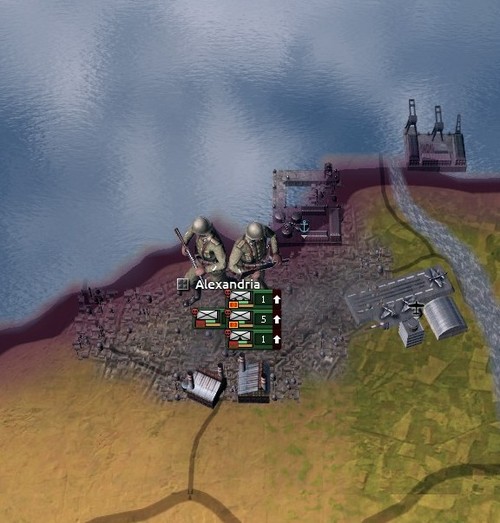
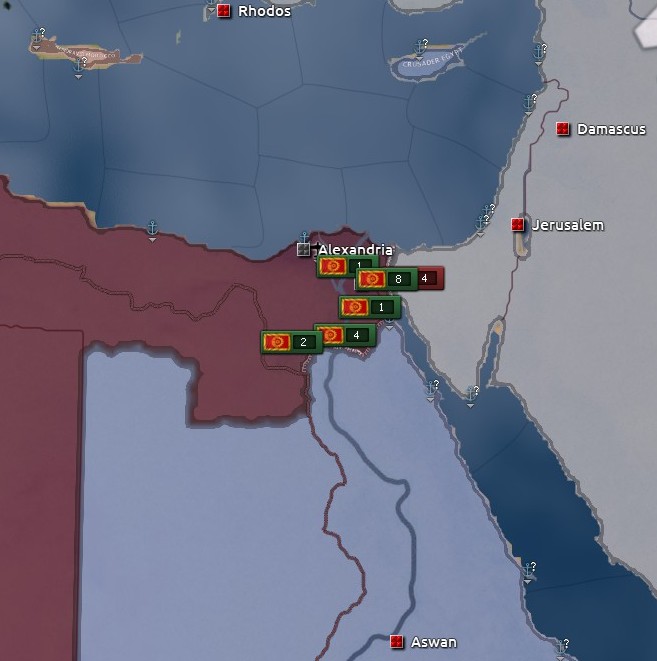
Back on the Frankish front, Mahmud ibn Bibil had devised his own plans over the past couple months, inspired by Tiqnu’s foray into Arabia.
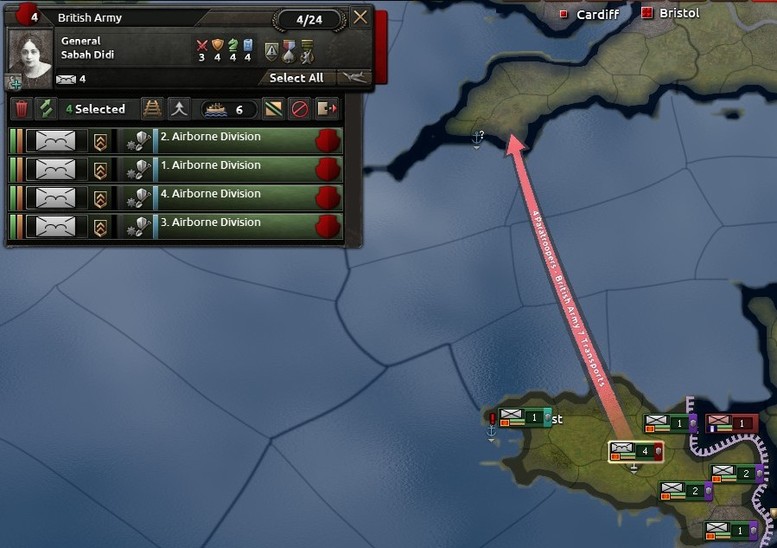
Led by a talented commander named Sabah Didi, 4 airborne divisions crossed the Channel and touched ground in Falmouth, a large port-city and capital of Cornwall. From there, they quickly secured large parts of the sparsely-defended peninsula, sparking the battle of Britain in March of 1943.
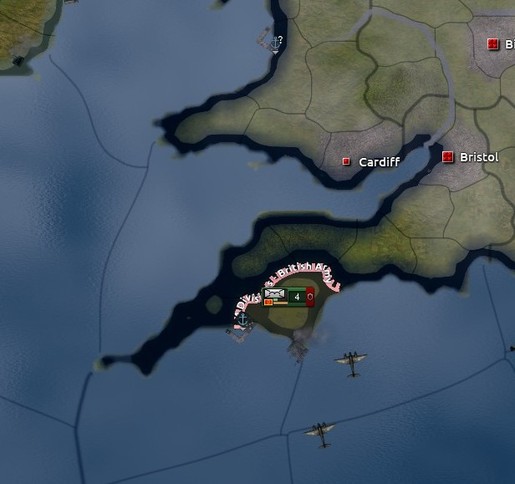
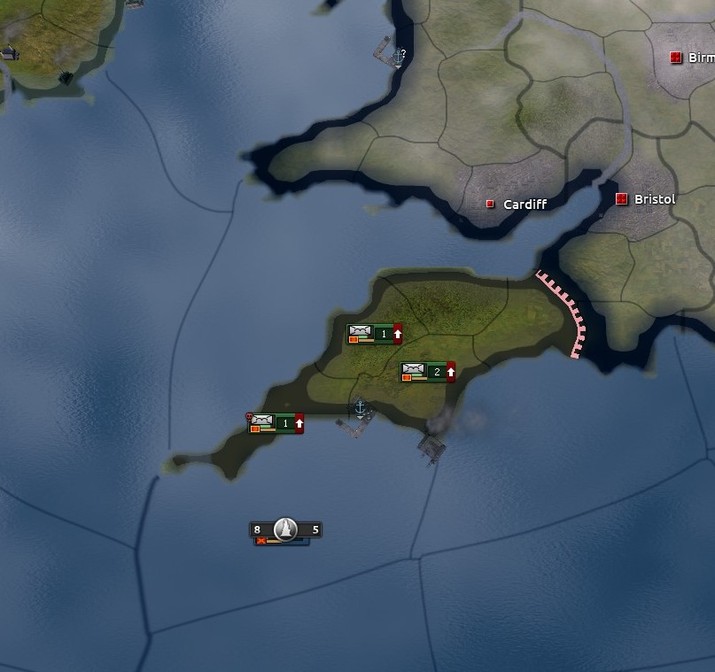
Another successful operation, but unfortunately for Mahmud ibn Bibil, it wasn’t the news that the Supreme Leader wanted to hear.
The Iberians had faltered and stalled at every turn over the past year, with their few breakthroughs quickly surrounded and run to ground, with the casualties often numbering in the tens of thousands (though most of these were Provencal and Ibrizi exiles).
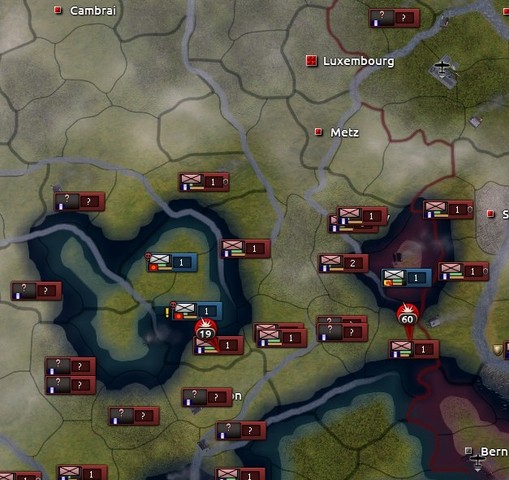
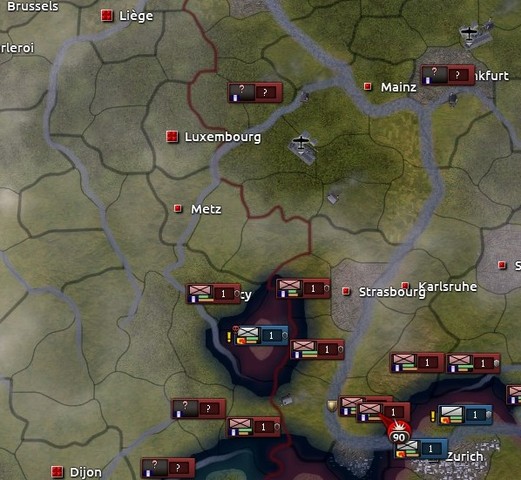
Despite being just a couple hundred miles from Paris in April of 1939, the Iberian advance had slowed to an agonising crawl as Frankish reinforcements flooded the theatre in a determined attempt to recapture Brittany and Auvergne, an attempt that only resulted in a static frontline.
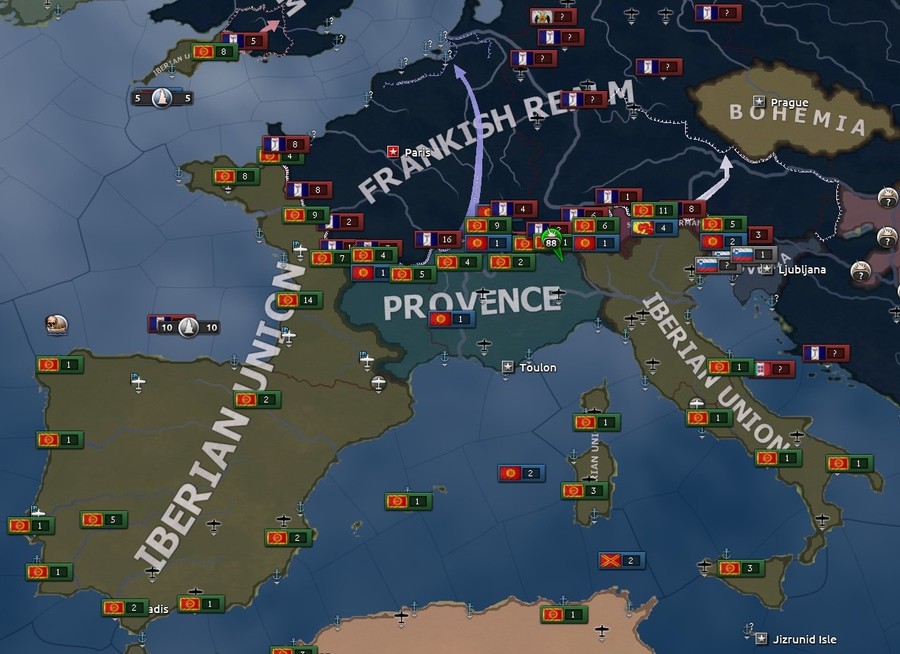
As far as the Supreme Leader was concerned, however, these were all excuses. He had expected to be standing in Paris by then, and even with the Franks regaining numerical superiority, Mizanur demanded that his marshals accelerate their plans or else suffer the consequences.
And those consequences would be severe, very severe indeed.
